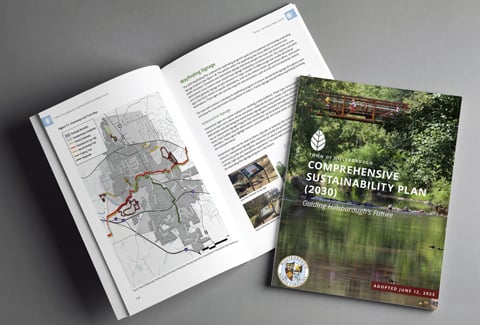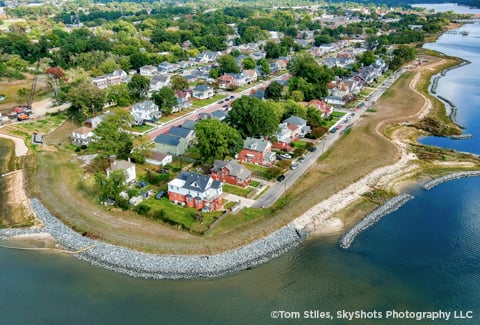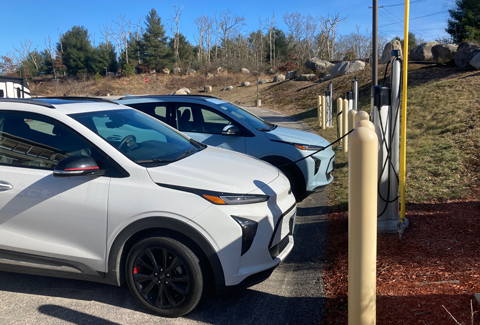Declared an eco-municipality in 2007, the City of Portsmouth, NH has developed an innovative Climate Action Plan (CAP) to reduce municipal and community-based greenhouse gas (GHG) emissions and protect the coastal city against current and future climate threats. The CAP was officially adopted and launched in August 2024, and work on the City’s dashboard to track emissions data and implementation progress is well underway. Partnering with the City, VHB developed the CAP as a guide to integrate climate mitigation and adaptation planning into the local planning and regulatory framework, serving as the foundation for climate action goals and projects in the coming decades. Additionally, the plan will advance equity, ensuring that community members experience the benefits of positive outcomes and that none bear a disproportional share of climate change impacts.
The team implemented the project in two phases. The first phase focused on evaluating the city’s sources of greenhouse gas (GHG) emissions, performing a crosswalk of existing plans and policies, and engaging city staff, residents, and stakeholders to develop ideas and priorities. Phase two included a preliminary assessment of strategies to meet net zero emissions reduction goals, alongside a review of their applicability and feasibility, followed by prioritization and phasing. A particular focus was on a deep-dive review of local regulations to promote the installation of solar photovoltaics for both residents and businesses. By identifying short-, medium-, and long-term strategies, the Climate Action Plan provides an innovative, step-by-step approach to addressing, mitigating, and adapting to ongoing and future climate change impacts in an effective and equitable manner.
Phase two included a preliminary assessment of strategies for greenhouse gas (GHG) emissions reduction goals and review for their applicability and feasibility, as well as subsequent prioritization and phasing. By identifying short-, medium- and long-term strategies, the plan provides an innovative, step-by-step approach to addressing, mitigating, and adapting to ongoing and future climate change impacts in an effective and equitable manner. Additionally, the plan presents options for updating local regulations to promote the installation of solar photovoltaics for both residents and businesses.




















